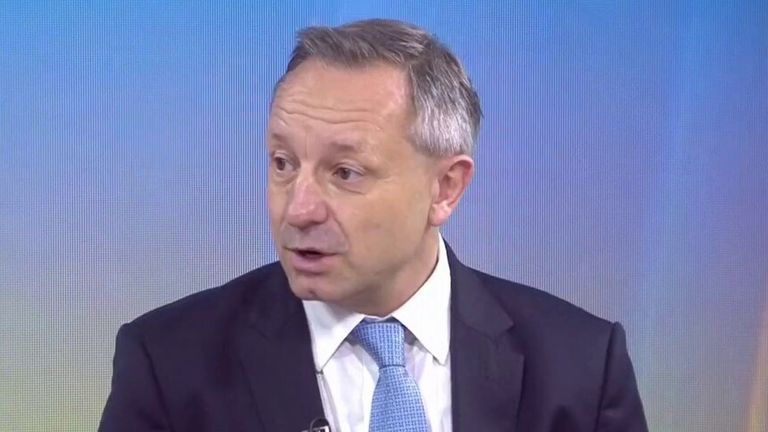Energy bills in the first three months of 2024 are projected to increase before dropping later in the year, according to a closely-watched forecast.
Consumers can expect more costly bills from January as energy regulator Ofgem will bring its price cap up to £1,898 for an annual average household bill – an increase of £64, research firm Cornwall Insight says.
From Sunday, a typical yearly energy bill will cost £1,834 – a fall of roughly £200 from three months earlier – when the price cap for the final three months of 2023 comes into effect.
This is lower than the £1,925 first announced because Ofgem has revised downwards what they class as average household use. People are using less electricity as costs have come up and appliances have become more efficient.
The regulator puts a cap on the amount energy providers can charge per unit of power. Those caps have continually come down as wholesale oil and gas prices have fallen.
Now that wholesale prices are trending more expensive again, the forecasts have been higher.
Read more:
Spending calculator: See which prices have gone up or down
UK economic growth bigger than previously thought
However from 1 April 2024, Cornwall Insight says the price cap will fall again to £1,819.60 for the average household bill.
Higher prices than current levels are expected to remain until July 2024 when average bills are anticipated to be £1,781.37. From October 2024, bills are forecast to be £1,825 a year.
Dr Craig Lowrey, the principal consultant at Cornwall Insight, said: “While the rise is small, it shows we cannot just assume prices will continue their fall and eventually reach pre-pandemic levels.
“Policies need to be put in place to deal with the possible situation that high energy prices have become the new normal.
“It is only by continuing our transition away from fossil fuels, towards secure and sustainable domestic energy sources that we can reduce our exposure to such international drivers and, in turn, stabilise our energy prices.”

